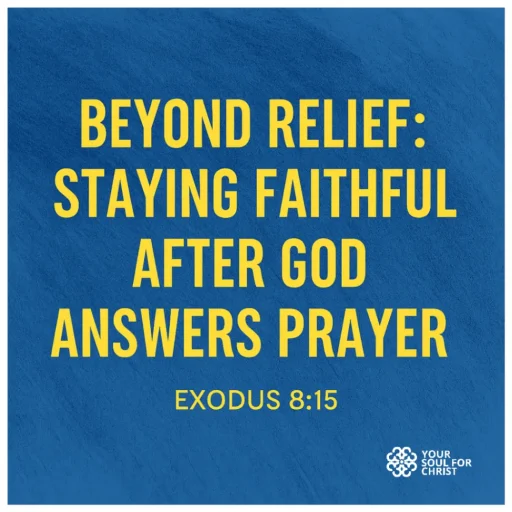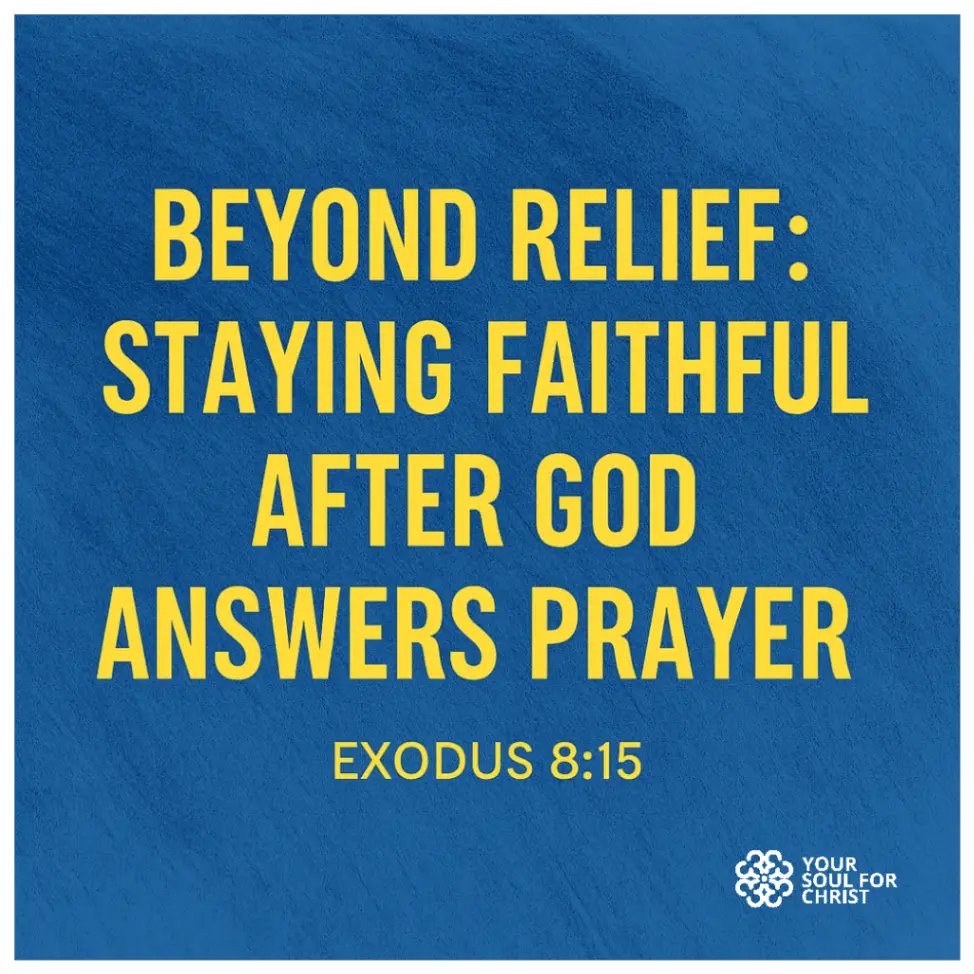But when Pharaoh saw that there was relief, he hardened his heart and would not listen to Moses and Aaron, just as the Lord had said.
Exodus 8:15 NIV
In the third sign that the Lord performed through Moses and Aaron to reveal His power, Egypt found itself overwhelmed by frogs. They were everywhere — in homes, in beds, and even in kitchens. Pharaoh, suffocating under the weight of this discomfort, summoned Moses and Aaron in desperation for relief.
He pleaded, “Pray to the Lord to take the frogs away from me and my people, and I will let your people go to offer sacrifices to the Lord” (Exodus 8:8).
At first glance, Pharaoh’s request seemed sincere. His words carried urgency and humility, but only because his situation demanded relief. His cry was born out of distress, not devotion. He sought comfort, not change.
When Moses prayed, the Lord answered. The frogs died, and the land grew quiet again. Relief came swiftly. Yet the peace that followed revealed Pharaoh’s true heart. Scripture says, “When Pharaoh saw that there was relief, he hardened his heart and would not listen to Moses and Aaron, just as the Lord had said” (Exodus 8:15).
This moment exposes a subtle but dangerous truth about the human heart. Pharaoh’s repentance was real only for as long as his pain lasted. The instant the pressure lifted, so did his resolve. His stubbornness was not imposed by God — it was his own doing. The same heart that cried for mercy when burdened became proud again when comfort returned.
How often do we fall into the same trap? In times of trial, our prayers flow easily. We promise faithfulness, obedience, and renewed commitment. But when the storm passes, comfort dulls our urgency, and devotion fades into routine.
Pharaoh’s story reminds us that pain is not the only test of faith — comfort is. It is easy to pray when life hurts, but it takes genuine love for God to stay faithful when life feels secure.
Do we seek God for who He is, or only for what He can fix? Do we love Him in our relief as much as we do in our distress?
True repentance continues beyond the moment of deliverance. It transforms our hearts, not just our circumstances. Pharaoh mistook temporary comfort for lasting peace, unaware that greater judgment still awaited him. Likewise, if we treat God as a rescuer only in crisis, we miss the beauty of knowing Him as a companion in calm.
Relief should lead us to gratitude, not complacency. Every answered prayer is an invitation to a deeper relationship, not a signal to return to self-sufficiency. The comfort God gives is meant to draw us closer to Him, not away from Him.
Pharaoh’s downfall began not in suffering, but in satisfaction. When the frogs disappeared, so did his humility. The danger of comfort lies in its ability to make us forget our dependence on God.
Living It Out
When life grows peaceful, resist the urge to drift. Instead, remember the prayers that brought you to this point. Continue in gratitude, worship, and humility. Let relief become a reason to deepen your walk with God. Pray for a heart that remains tender before God — one that seeks Him in both the storm and the stillness.
May we never, like Pharaoh, harden our hearts after answered prayers. Instead, may every deliverance remind us of the faithful God who deserves our love, not just our requests.

